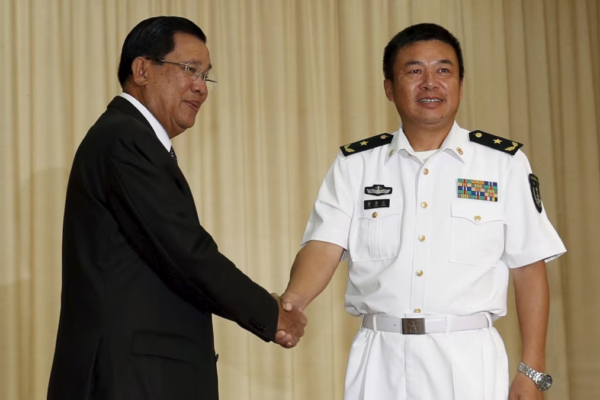Read RFA coverage of this topic in Burmese. Myanmar’s military killed 40 civilians, including Buddhist monks and children, in airstrikes in northern Myanmar as it tries to pound its enemies into submission, insurgents told Radio Free Asia on Monday. Myanmar’s rising toll of civilian casualties comes as a humanitarian crisis is looming and a major food aid agency announced it will have to cut support because of a funding shortfall. Myanmar has been engulfed by conflict since the military overthrew an elected government led by Nobel laureate Aung San Suu Kyi in 2021, with thousands of civilians killed, villages razed and some 3.5 million people displaced by war and natural disasters. Forced onto the defensive by unprecedented opposition from young people from the majority Barmar community teaming up with ethnic minority insurgents, the military has increasingly turned to its air force to unleash devastation, often on civilian areas, rights groups and insurgents say. “We can say they are purposefully attacking civilians,” said Lway Yay Oo, spokesperson for the Ta’ang National Liberation Army, or TNLA, an ethnic minority insurgent force in Shan state, which is on the border with China. Junta airstrikes on the Sein Yadanar monastery in Shan state’s Nawnghkio town on Sunday, killed 13 civilians, including six monks, four of them young novices, said Lway Yay Oo. Seventeen people were wounded in the air attack, 13 of them monks, she said, adding that the military was trying to force the TNLA back into peace talks that China, with extensive economic interests in Myanmar, is trying to broker. The Myanmar army has a long record of trying to overcome insurgencies by undermining their civilian support, often by attacking villagers, rights investigators say. Lway Yay Oo said there was no question the military was targeting civilians. “They’re deliberately attacking religious buildings in Nawnghkio and they also bombed the hospital …. We’ve also seen that they’re burning and destroying homes.” The spokesperson did not say anything about prospects for talks with the military, which is keen to roll back insurgent gains over the past year as it prepares for an election, due by January, which it hopes will bolster its legitimacy at home and abroad. Myanmar’s military rarely releases information about the fighting, which has erupted in almost all corners of the country, and attempts by RFA to reach the junta spokesperson, Maj. Gen. Zaw Min Tun, by telephone were not successful. Related stories Living ‘day-by-day’ in Myanmar’s rebel camps Myanmar junta troops massacre 11 villagers, most too old to flee, residents say Myanmar’s Karen fighters capture junta camp, soldiers flee to Thailand Blood on road to Mandalay On Friday, a junta air attack on Let Pan Hla village, on a main road 70 kilometers (45 miles) north of Mandalay city, killed up to 27 people, according to a spokesperson for a pro-democracy insurgent force operating in the area. “They attacked for no reason and deliberately targeted the public. They were targeting customers and vendors in a busy street near the village market,” said Mandalay People’s Defense Force spokesperson, who goes by the one name Osman. Residents of Let Pan Hla village, north of Mandalay city, survey damage after a Myanmar military airstrike on March 14, 2025.(Mandalay People’s Defense Force) The People’s Defense Force, or PDF, captured the area in July and junta forces have been on the attack ever since, he said. The PDF commander, Soe Thu Yazaw, said in a social media post that six children were among the dead and many people were wounded. “The bombing targeted people going about their daily activities at the market, so the number of injured is also high,” he said. “Long distance buses often stop in Let Pan Hla for food and a break, so it’s busy.” The death and destruction from the fighting is compounding a dire humanitarian outlook in a country where the U.N. says a “staggering” 15.2 million people are unable to meet their minimum daily food needs and some 2.3 million people are facing emergency levels of hunger. The U.N. food agency has warned that more than one million people will be cut off from its food assistance from April due to critical funding shortfalls. “The impending cuts will have a devastating impact on the most vulnerable communities across the country, many of whom depend entirely on WFP’s support to survive,” Michael Dunford, representative and country director of the World Food Programme, said in a statement. Internally displaced people in Rakhine state, where fighting has been particularly heavy, would be hard hit, the WFP said. Aid agencies helping in Myanmar have been under pressure since a January order by the administration of U.S. President Donald Trump to freeze all global aid until a review was completed. Translated by Kiana Duncan. Edited by RFA Staff. We are : Investigative Journalism Reportika Investigative Reports Daily Reports Interviews Surveys Reportika


